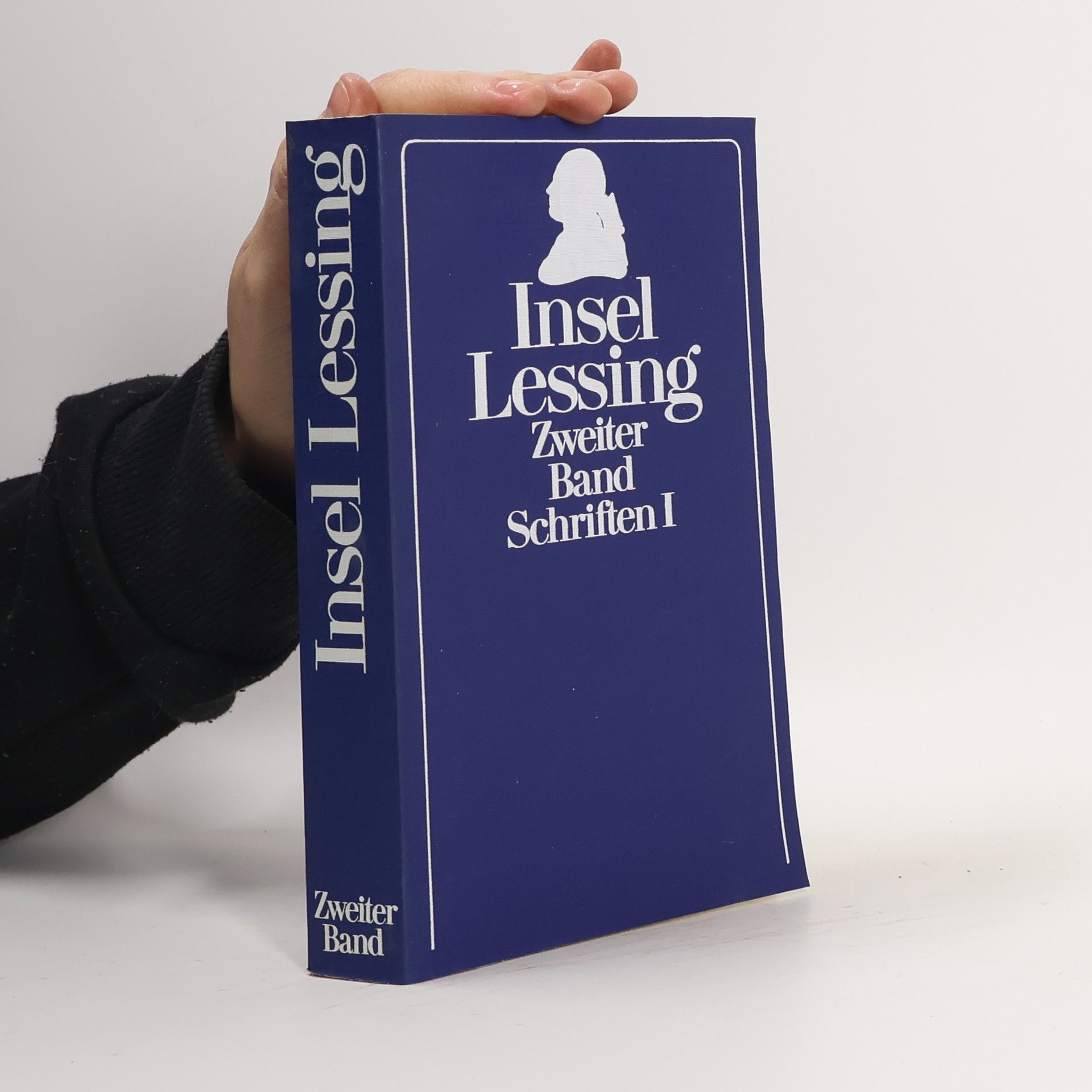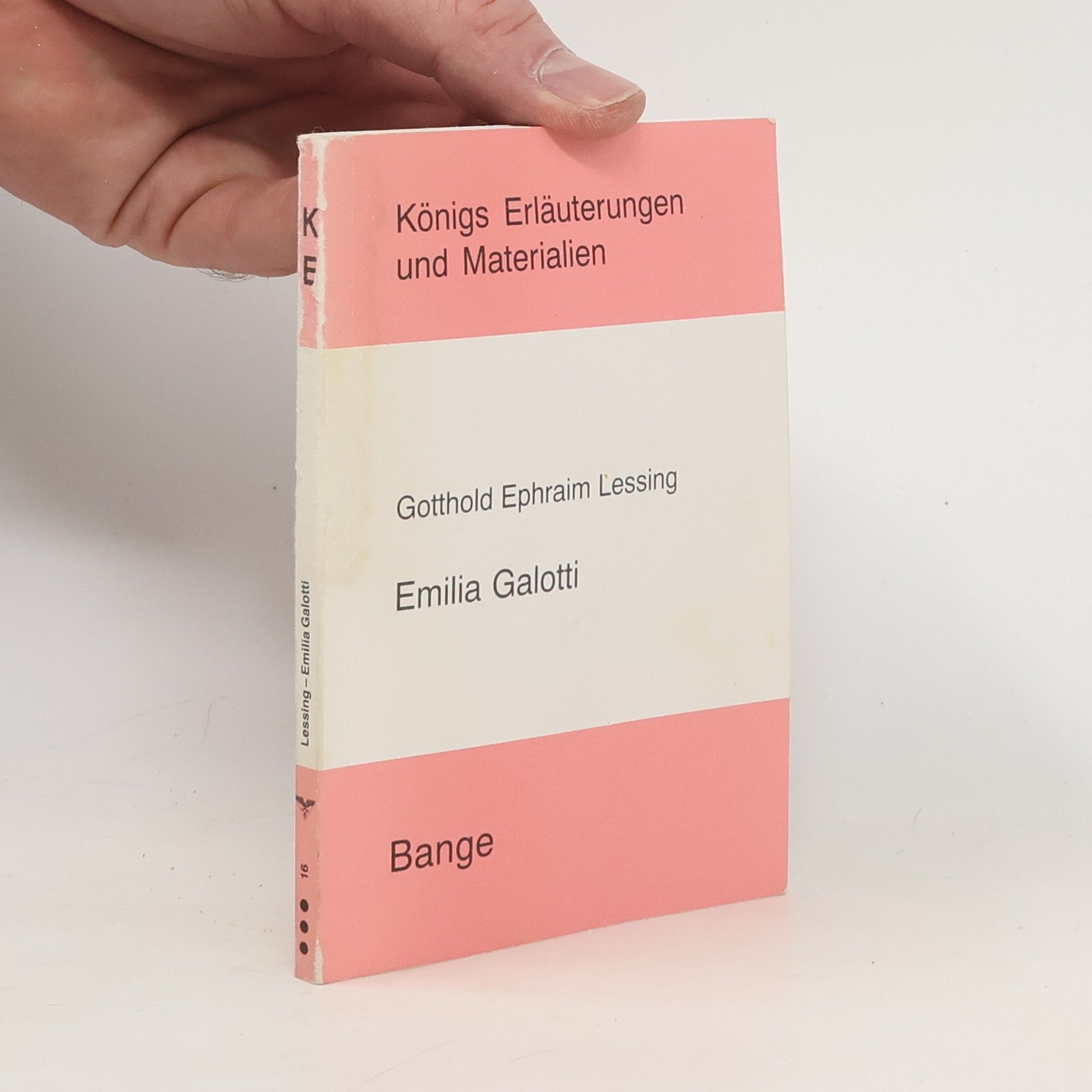Testo tedesco a fronte Nathan il Saggio è il capolavoro di Lessing e della letteratura tedesca dell'illuminismo. Questa fiaba didascalica, che infrange spavaldamente i canoni del realismo, anche se fa parlare con sommesso, commosso realismo ognuno dei suoi irreali personaggi, è una delle lezioni più alte che un letterato abbia lasciato – scrive Andrea Casalegno – e quella di cui oggi l'umanità ha maggiormente bisogno. Sta a ciascuno dei suoi lettori farla rivivere, in sé e intorno a sé. Perché Nathan è il poema della tolleranza religiosa, anzi, della tolleranza tout court.
Gotthold Ephraim Lessing Libri
Gotthold Ephraim Lessing fu una figura cardine dell'Illuminismo tedesco, lasciando un'impronta indelebile sulla letteratura e sulla filosofia. Le sue opere teatrali e i suoi scritti teorici, caratterizzati da arguzia e ironia, influenzarono profondamente lo sviluppo del dramma tedesco. Lessing impiegò magistralmente il dialogo per esplorare idee da molteplici prospettive, considerando la verità come un processo continuo di approssimazione. Promosse l'evoluzione del teatro borghese e le sue opere rimangono archetipi del successivo dramma tedesco.







Emilia Galotti
- 89pagine
- 4 ore di lettura
Emilia Galotti non è solo la più bella delle opere di Gotthold Ephraim Lessing (Kamenz 1729 - Braunschweig 1781), ma anche la più discussa e avversata tragedia del teatro tedesco, che purtuttavia continua ad avere un successo duraturo. Nonostante le riserve dei critici, l'Emilia Galotti resta sulle scene vivissima, così come sorse: come un'isola di Delo del mare, disse Goethe, vincendo, in virtù della sua bellezza illuministica, la grigia produzione drammatica contemporanea.
Laocoon : an essay upon the limits of painting and poetry
- 272pagine
- 10 ore di lettura
According to Greek mythology, Laocoon was a Trojan priest who, along with his two sons, offended the gods. As punishment, the three were strangled by sea serpents. The discovery in 1506 of an ancient Greek sculpture showing the three figures in their death agony not only gave rise to renewed interest in the classical period but also created repercussions in the art world. It was this work of art that German dramatist and critic Gotthold Lessing used as a point of reference for his essay Laocoon. Originally published in 1766, Lessing's inspired meditation on the distinguishing characteristics of painting and poetry became a turning point in the study of Western art. His essay on the origins, forms, and influences of these art forms aided in framing modern conceptions of the artistic medium and helped establish modernist views of the uniqueness of the individual arts. A breakthrough vision in aesthetics, Laocoon is essential reading for anyone interested in poetry, art history, and the fine arts.
This publication focuses on making historical works accessible to individuals with impaired vision through large print. Megali, the publishing house behind this initiative, specializes in reproducing these significant texts, ensuring that important literature remains available to a wider audience.
Nathan Der Weise: Nathan Der Weise
- 86pagine
- 4 ore di lettura
A German Grammar and Reader, featuring a Vocabulary on a new plan, was created to enhance German studies in the country. In response to numerous requests, a concise dictionary, modeled after the Vocabulary, has also been developed. To support class use, a series of texts with careful annotations and explanations has been added, featuring selections that have gained approval through extensive use. The notes and introductions for the various works come from different scholars across the country, all under the guidance and revision of the general editor. Forgotten Books publishes many rare and classic works, utilizing advanced technology to digitally reconstruct these texts while preserving their original format and addressing imperfections in the aged copies. Although some original flaws, like blemishes or missing pages, may be present, the majority are repaired to maintain the integrity of these historical works.
Laocoön; Nathan the Wise & Minna Von Barnhelm
- 326pagine
- 12 ore di lettura
Selected for its cultural significance, this work contributes to the foundational knowledge of civilization. It is recognized by scholars for its importance in understanding historical and societal contexts, making it a valuable resource for those interested in the evolution of human thought and culture.
Featuring 112 fables that convey moral lessons, this collection showcases the storytelling talents of Gotthold Ephraim Lessing through both prose and verse. The narratives, populated by animal characters, explore themes of life, morality, and human behavior, making them timeless classics in German literature. Originally published in 1887, this facsimile reprint preserves the cultural significance of the work while aiming to make it accessible to modern readers. Ideal for those interested in fables and morality tales, it remains a valuable resource for study and enjoyment.
Insel Lessing 2. Schriften I.
Schriften zur Poetik, Dramaturgie, Literaturkritik
Königs Erläuterungen und Materialien - 16: Emilia Galotti
Königs Erläuterungen und Materialien
This edition of the drama is based on the last reprint published during the poet's lifetime, designated as 1772 d, following three earlier versions from the same year. Notably, a manuscript in the poet's handwriting, held at the Royal Library in Berlin, offers a superior text in four instances, which the editor has incorporated. The manuscript features the phrase "non etwab anherm," while the reprint states "non' etmae anbem." Additionally, the manuscript uses "tie jungen Beute," contrasting with the reprint's "hie innge Route." The manuscript's form "netbirbt" is preferred over the reprint's "oerberbt," which has since been replaced by "verbitbt." Lastly, the manuscript reads "ibn mifien Iafien," while the reprint opts for the now-obsolete "ibm." Other significant variant readings from the manuscript are noted throughout the text. Forgotten Books publishes numerous rare and classic works, utilizing advanced technology to digitally reconstruct texts and preserve original formats while addressing imperfections. Although some flaws from the original may appear in this edition, most are repaired to maintain the integrity of these historical works.
Die Sinngedichte thematisieren die Beziehung zwischen dem Leser und dem Autor, wobei der Autor Klopstock lobt und gleichzeitig die Frage aufwirft, ob dessen Werke tatsächlich von allen gelesen werden. Es wird ein Wunsch geäußert, weniger erhaben, dafür zugänglicher und ansprechender für die Leser zu sein. Die Gedichte reflektieren somit über die Literatur und die Erwartungen an Autoren und Leser in einem anregenden Dialog.


